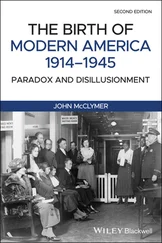‘We’ll have a better sense of what will happen when she’s been assessed by the doctors,’ says the midwife.
*
So Brigid waits. She waits, trembling on her regulation bed. Patrick washes his face in the sink. Cleans his teeth. He takes a book and tries to read. ‘Let me know if you want anything,’ he says to Brigid. He is sitting on a low chair, trying to read a thriller. Even now, thinks Brigid, as Patrick reads, and as the midwife tidies the room, and as she lies there, inert apart from the involuntary spasms, her labour is continuing, without her intervention or even awareness. Within her body, though she does not notice, everything is changing, the baby is preparing to leave.
*
She thinks of Calumn, waking in his little bed, wondering where she is. Crying, ‘Mamamam.’ She has only spent a few nights apart from him since his birth. She wonders if he woke in the night, and if he cried for her and found she had gone. Her mother would have been sleeping in the spare room — she imagines Calumn shuffling along the corridor, opening the door of the main bedroom, finding it empty, not knowing where else to look. Bemused and lonely in the corridor, in his little pyjamas. She should have told her mother to sleep in the main bedroom instead. She hadn’t been thinking, at the time.
She says to Patrick, ‘Can you call my mother?’
Patrick takes his phone and dials the house. There is a brief pause and then he is saying, ‘Hello, yes, it’s Patrick here. How was your night? Oh no, no news here. We’re just waiting for the doctors to come in and assess Brigid. But she’s fine. Well, she can tell you everything herself. Here she is.’
‘Darling,’ says her mother, as Brigid takes the phone. ‘What on earth is happening? You can’t still be in labour?’
‘I had an epidural. So everything slowed down further but wasn’t painful any more.’
‘Oh, I’m so glad. That was sensible of you. But what’s happening now?’
‘The doctors are coming in a moment. Then they’ll tell me what stage we’re at.’
‘How frustrating for you, dear. What bad luck.’
‘Never mind. Anyway, how is Calumn?’
‘Oh, he’s fine. A little bit up and down in the night; I think he just knew something was going on.’
‘Did he find you in your room?’
‘No, I heard him crying in the corridor.’
‘Was he upset we weren’t there?’
‘Oh, perhaps a little, at first, but then we had a fine old time of it. I took him back to bed and sang him a few lullabies, and he fell asleep soon enough. And then I slept on the sofa bed in his room. So I was there the next time he woke, and — oh Lord — the next. Reminded me of all the sleepless nights I had with you.’
‘What’s he doing now?’
‘He’s just having some milk. And we’re reading a story.’
‘So he’s not too upset?’
‘No no, he’s fine. He’s just here. He’s a resilient little fellow, aren’t you darling? We’ll be absolutely fine here until you get back.’
‘Can I speak to him?’
‘Of course.’
And Brigid imagines her mother holding the phone to Calumn’s ear, the phone touching his shining hair, and she says, ‘Hello sweetie. How are you? It’s Mummy here. I love you so much. And I’m coming back very soon, lovely little boy. I hope you’re having a nice breakfast. Daddy is with me and he loves you very much too. We will be back very soon and then we will all sit down together and eat some food and read some books. Won’t we sweetie? I love you very very much.’
‘Is that everything?’ says her mother.
‘Did he smile?’
‘Oh yes, he knows his mummy, don’t you Calumn?’
‘Patrick will call you and let you know what’s happening, if I can’t,’ says Brigid.
‘Of course, I understand. I’ve been through it myself. Don’t worry about us at all.’
‘Thanks Mum.’
‘You look after yourself.’
*
Brigid hands the phone back to Patrick. Her mother, always good in a crisis. A coper, self-determinedly. And Brigid yearns for her son, and wants to hold him and kiss him and hear him babbling lovingly at her, and she worries — once again, once more after all the times she has worried about it already — that he will never recover from the arrival of the other child. But this other child — and she turns to the midwife and says, ‘Will it be soon?’
‘Oh yes, very soon.’
*
Michael is on the platform, and the train is delayed. Sally had offered to order him a taxi, of course she had offered, and almost insisted, but he said he wanted to take the Tube. ‘Madness,’ she said to him, the night before. ‘You don’t want to be jostled around and probably end up late, do you, really? Arrive puffed out and sweaty, hardly in the right frame of mind? When you could come along in an air-conditioned cab?’
‘No no, it’s quite all right,’ he said to her. She was obliged to accept his whim. ‘Whatever you prefer,’ she said in the end. ‘You’re the one who’ll be in the studio.’
*
So he is waiting for the Northern Line, and then he will have to change at Tottenham Court Road. All around him, thousands of humans, passing through time. Moving at their own pace through the hours and days. Michael looks around at them — at the man with a bulging briefcase, and the woman with a grim fixed expression, as if she hoped for something better, and all those with grey hair and balding heads and potbellies and a few more of their infirmities revealed to the world. A few more hidden away. He knows nothing of their experience of time, though each one has woken to the sunshine and eaten breakfast and conducted their morning rituals, and each one, thinks Michael, lives — though perhaps they do not know it — governed by ancient impulses — a desire for human company, love, intimacy, family, a fear of darkness and the unknown, an aversion to pain, a curious sense of hope, despite everything. Perhaps some of them believe that this series of days — their series of days — will be infinite. Perhaps the repetition has deluded them, so they do not notice the years passing, or perhaps they look up from time to time and see that things have subtly changed, that something in their cycle of days has changed. But maybe they dismiss the thought. Ultimately, he thinks, we must all dismiss this thought, because otherwise how do we live? How do we live through our series of days?
*
The train is swinging towards the platform, and now it whirrs to a halt, and its doors open. In a swathe of people, a directed surge, Michael gains the entrance, and is deposited into a bright carriage. The train is crammed with bodies, and so he stands and holds onto a rail. All around him people are doing the same. The carriage is full of overheated humans, dressed in work clothes, shoulder to shoulder. But never, thinks Michael, face to face. Some of them are holding newspapers and struggling to read them. These people are hoping to differentiate themselves. But they are buffeted and jostled all the same.
*
‘This is a Northern Line train for Mill Hill East. Stand clear of the closing doors.’ It is foolish, thinks Michael, as he is buffeted and jostled in turn, to be too concerned about your own destiny, about the way the Fates toy with you, if they are toying indeed and not concerned with something else entirely. It is foolish to be too concerned, because in the end it is impossible to change things. Small elements might be rearranged, but the grand sweep, well, that is impossible to change. How could I have foreseen anything that has happened, all the events that have accumulated? All the mistakes I have made, the destruction even I have wrought? I was blind, as everyone is who lives within time.
*
To blame yourself for lacking foresight is perhaps like blaming yourself for being mortal, thinks Michael. You know nothing of the future. The past is unfathomable, stretching into darkness. The present is where you live. And the future — the future is simply the locale of your hope, the place where you deposit your expectations. And your fears too. But for some reason, today Michael feels more hope than fear. He thinks he may be redeemed. If he can go to her and say — something — what it is, he is not sure. When he is there, perhaps he will know.
Читать дальше












